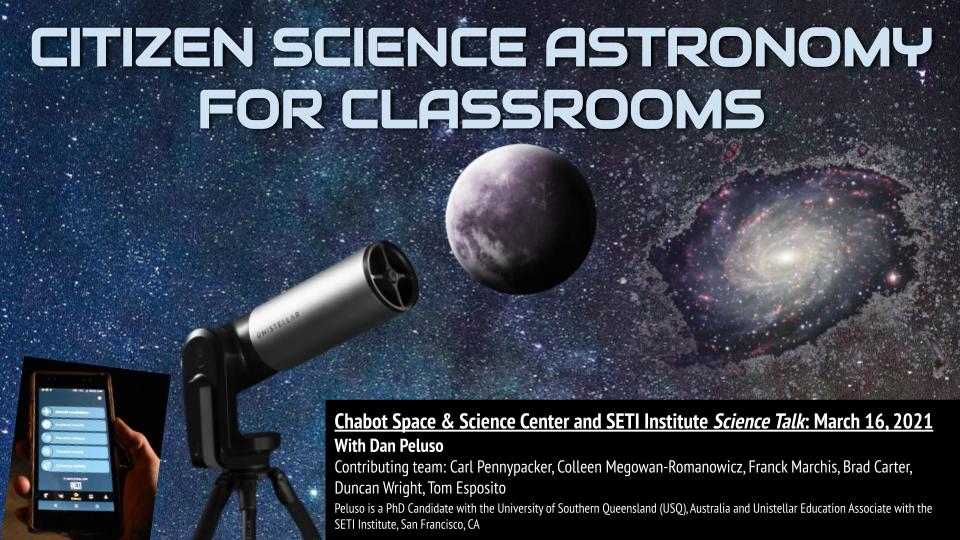
Dan Peluso is an astrophysics PhD candidate with the University of Southern Queensland (USQ) studying/researching remotely from the Bay Area, California, and is also a Unistellar Education Associate and researcher with the SETI Institute. Peluso’s PhD project is multi-disciplinary, focusing on NASA TESS exoplanet follow-ups, asteroseismology, and astronomy education research. For the astronomy education and SETI research, Peluso is developing a global exoplanet citizen science network for education using Unistellar Enhanced Vision Telescopes (eVscopes) so teachers and students can observe exoplanets and learn science by doing science. Peluso has years of experience as a high school science teacher and hopes to connect with educators and students from diverse and underserved backgrounds to build this network. Peluso also enjoys photography, music, film, and is an active singer-songwriter and musician. You can check out his most recent musical project, Falling Andes, on Spotify and Apple Music, but he is excited to share that he is currently working on a brand-new TBD titled music project for release in mid-2021.

